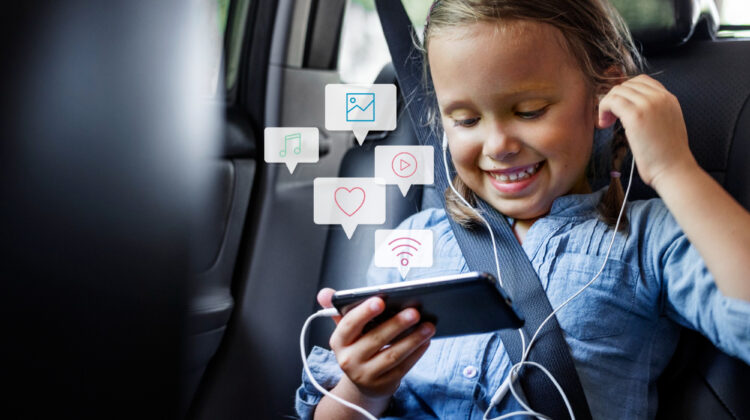
Mobile Health Apps for Kids: Navigating the Best in Privacy, Growth & Well Being
Introduction: The Digital Shift in Child Health
Technology has become a natural part of children’s daily lives, from online classrooms to interactive games. Among these digital tools, mobile health apps are emerging as valuable resources for supporting child health. They can encourage better nutrition, track physical activity, teach mindfulness, and even offer mental health support. Yet, with benefits come concerns about privacy and safety. For parents, the challenge is finding apps that genuinely support growth and well being while protecting children’s data.
Why Health Apps Matter for Kids
Children today face a unique blend of challenges: sedentary lifestyles fueled by screen time, changing eating habits, and growing stress linked to school or social media. Mobile health apps can help address these issues by offering:
- Interactive education on healthy habits.
- Engaging activities that promote physical fitness.
- Mindfulness tools that support emotional regulation.
- Progress tracking to encourage motivation and routine.
When thoughtfully chosen, these apps become powerful allies in child health, turning technology into a force for positive growth.
Privacy Concerns: A Parent’s First Priority
While health apps promise benefits, privacy must come first. Many apps collect sensitive information about children’s habits, location, or health conditions. Parents should always review privacy policies, checking whether data is shared with third parties or used for advertising. Child health experts stress that apps designed for kids should comply with laws like COPPA (Children’s Online Privacy Protection Act) in the U.S. or similar international regulations. Choosing privacy-conscious apps ensures children can learn and grow without compromising their safety.
Features That Support Healthy Growth
Not all apps are created equal. The best ones balance fun with educational value, encouraging habits that support physical, mental, and emotional growth. Key features to look for include:
- Customizable goals for fitness, nutrition, or mindfulness.
- Gamification elements like rewards, badges, or challenges to keep kids engaged.
- Age-appropriate design that matches a child’s developmental stage.
- Parental dashboards that allow monitoring without micromanaging.
Apps with these features integrate seamlessly into a child’s lifestyle, helping them develop habits that support long-term well being.
Types of Mobile Health Apps for Kids
Mobile health apps fall into several categories, each addressing different aspects of child health:
1. Fitness and Movement Apps
Apps like Sworkit Kids or Just Dance Now encourage children to stay active through short, fun workouts or dance routines. These apps turn physical activity into play, helping reduce sedentary behavior.
2. Nutrition and Eating Habits Apps
Tools like Fooducate or kid-friendly meal planners teach children about healthy food choices. They make nutrition interactive by helping kids understand what goes into their meals and how it affects their bodies.
3. Mindfulness and Mental Health Apps
Apps such as Smiling Mind or Headspace for Kids introduce relaxation techniques, breathing exercises, and guided meditations that help children manage stress and build emotional resilience.
4. Habit Tracking and Sleep Apps
Sleep-focused apps track bedtime routines and encourage good sleep hygiene, an often overlooked pillar of child health. Consistent sleep improves mood, energy, and academic performance.
The Role of Parents in App Use
Parents are essential partners in making mobile health apps work effectively. Simply downloading an app isn’t enough—parents should:
- Explore apps alongside their children.
- Set clear limits for screen time to avoid overuse.
- Reinforce lessons learned from apps with real-life practices, like cooking together or playing outdoors.
- Use app data as a starting point for conversations about health and well being.
When parents are actively involved, apps serve as tools for connection rather than replacements for family engagement.
Schools and Communities Embracing Health Apps
Some schools are beginning to integrate health apps into classroom activities or extracurricular programs. Fitness challenges, mindfulness sessions, or healthy eating campaigns supported by apps help create collective motivation. Community organizations also promote apps that support physical activity, making them part of broader child health initiatives. This integration reinforces the idea that technology can be used responsibly to promote wellness.
Expert Perspectives on Mobile Health for Kids
Child health professionals recognize the potential of mobile health apps but caution against overreliance. Pediatricians advise parents to view apps as complementary tools, not substitutes for medical care or real-world activities. Psychologists highlight the importance of teaching balance, ensuring that children learn when to engage with technology and when to disconnect. Experts agree that apps must be part of a holistic approach that includes outdoor play, social interaction, and family bonding.
Building Balance: Tech and Lifestyle Harmony
The ultimate goal of mobile health apps is to integrate healthy habits into children’s lifestyles. This means creating routines where technology is a support system, not a distraction. A balanced day might include screen-assisted workouts, mindful breathing exercises, family meals inspired by nutrition apps, and unstructured play outdoors. By weaving apps into daily life intentionally, families promote resilience, confidence, and well being.
Conclusion: Choosing the Right Apps for Child Health
Mobile health apps for kids can be powerful allies when used wisely. They educate, motivate, and inspire healthy routines while keeping children engaged in fun, interactive ways. However, parents must remain vigilant about privacy and balance. By choosing apps that prioritize safety, promote growth, and complement real-world habits, families can ensure technology supports—not replaces—child health. In the end, the best apps are those that empower kids to thrive both online and offline, building habits that will carry into adulthood.







